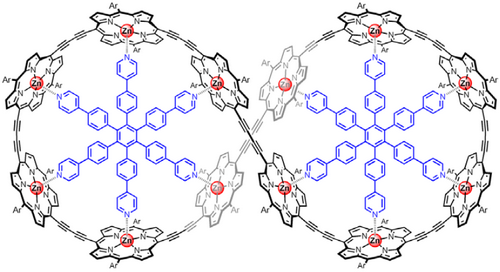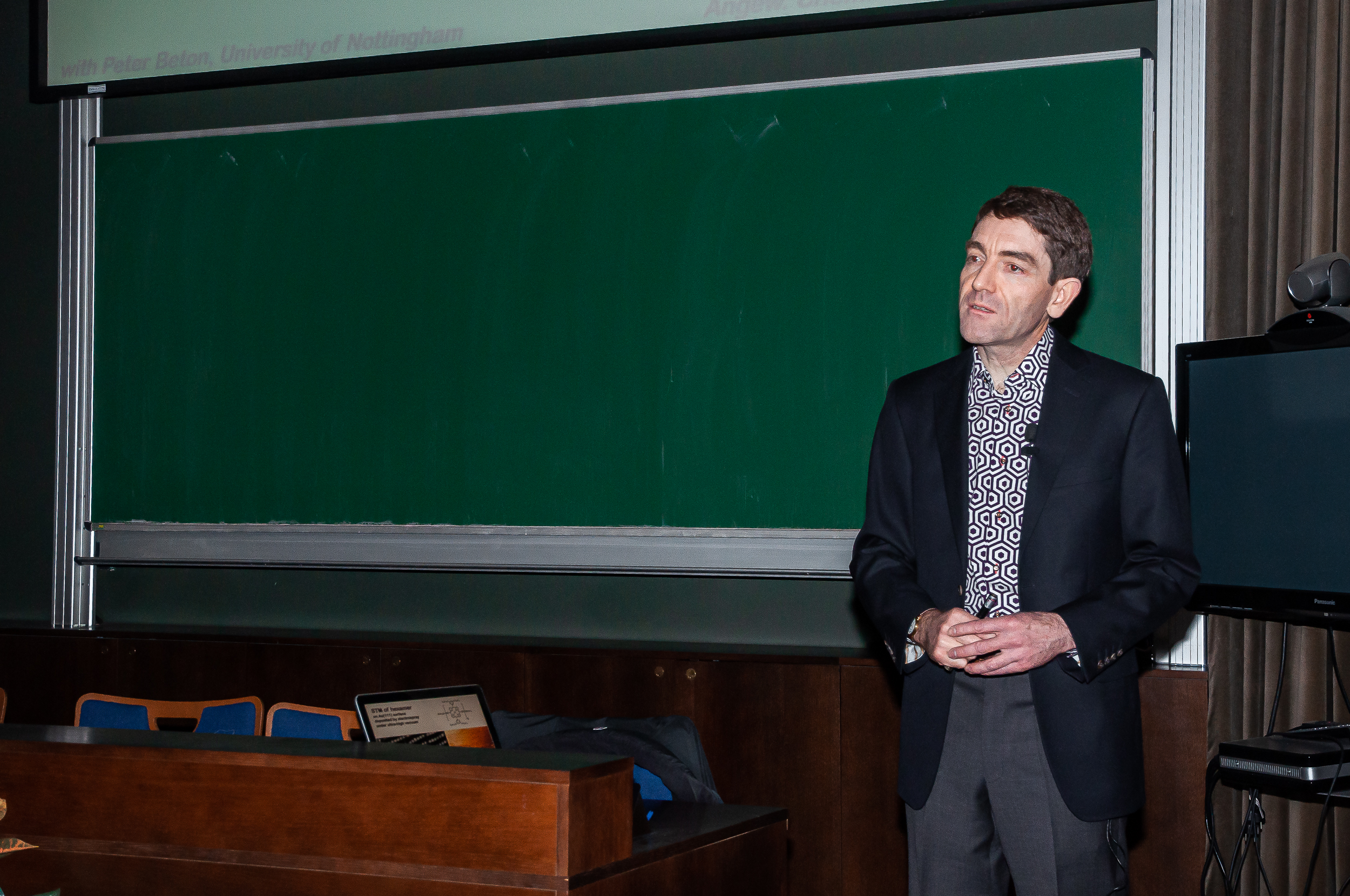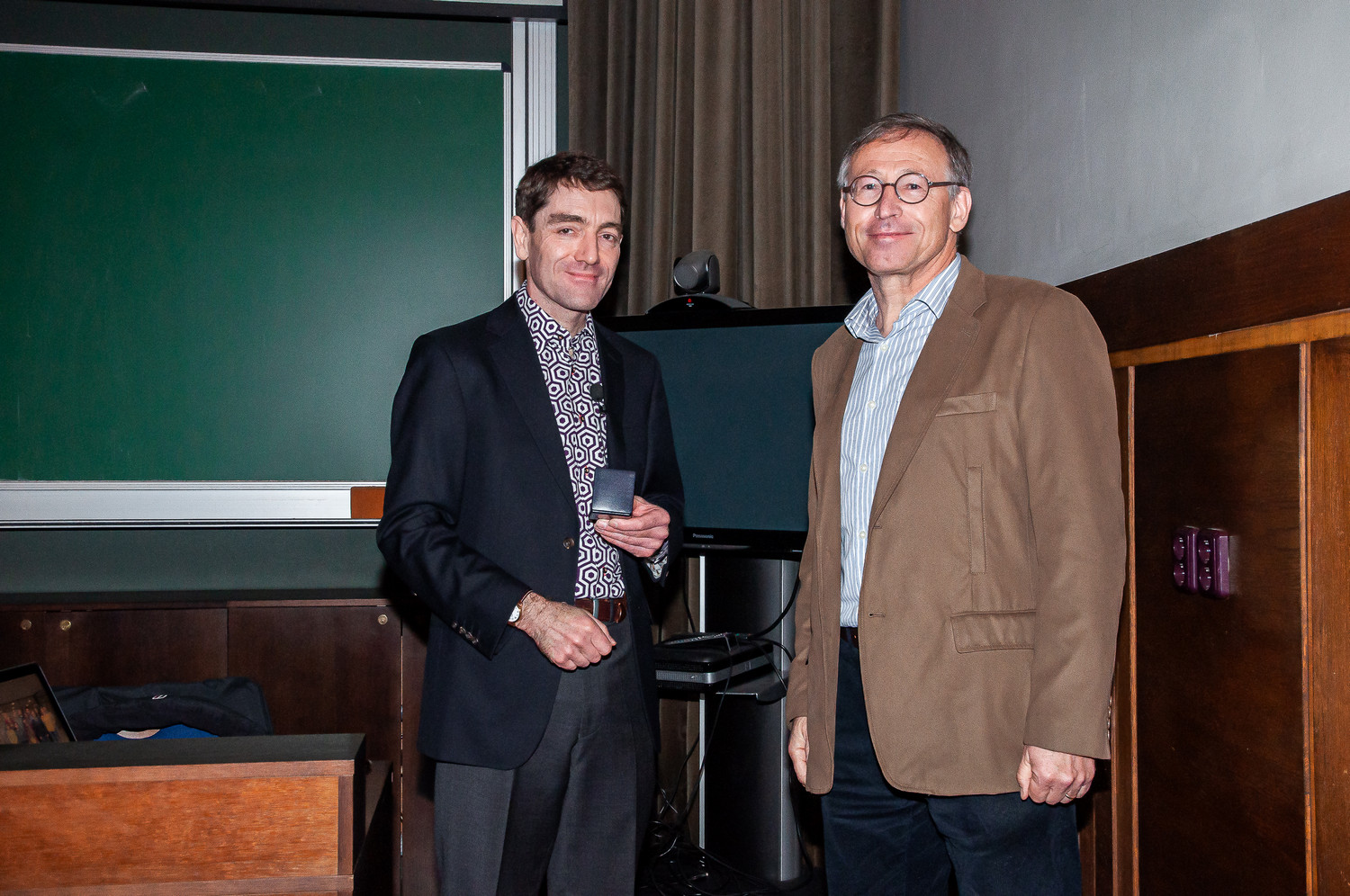
Prof. Harry L. Anderson (Oxford University, UK)
New Approaches to the Design and Synthesis of Molecular Wires for Biomedical and Nanotechnology Applications
Abstract
Conjugated porphyrin oligomers exhibit remarkable properties, such as wire-like charge transport, ultrafast energy migration, nonlinear refraction and strong two-photon absorption. They are amazingly amenable to supramolecular control, and the coordination chemistry of the metal centers leads wide possibilities for template-directed synthesis.
This lecture will present the synthesis of π-conjugated nanorings which enter the size domain of a typical protein, such as the figure-of-eight complex shown below. Applications of related oligomers in molecular electronics and for probing electrical activity in neurons will also be discussed.

References
- Two Vernier-templated routes to a 24-porphyrin nanoring, Kondratuk, D. V.; Perdigao, L. M. A.; O'Sullivan, M. C.; Svatek, S.; Smith, G.; O'Shea, J. N.; Beton, P. H.; Anderson, H. L. Angew. Chem. Int. Ed. 2012, 51, 6696–6699.
- Long-range electron tunnelling in oligo-porphyrin molecular wires, Sedghi, G.; García-Suárez, V. M.; Esdaile, L. J.; Anderson, H. L.; Lambert, C. J.; Martin, S.; Bethell, D.; Higgins, S. J.; Elliott, M.; Bennett, N.; Macdonald, J. E.; Nichols, R. J. Nature Nanotech. 2011, 6, 517–523.








